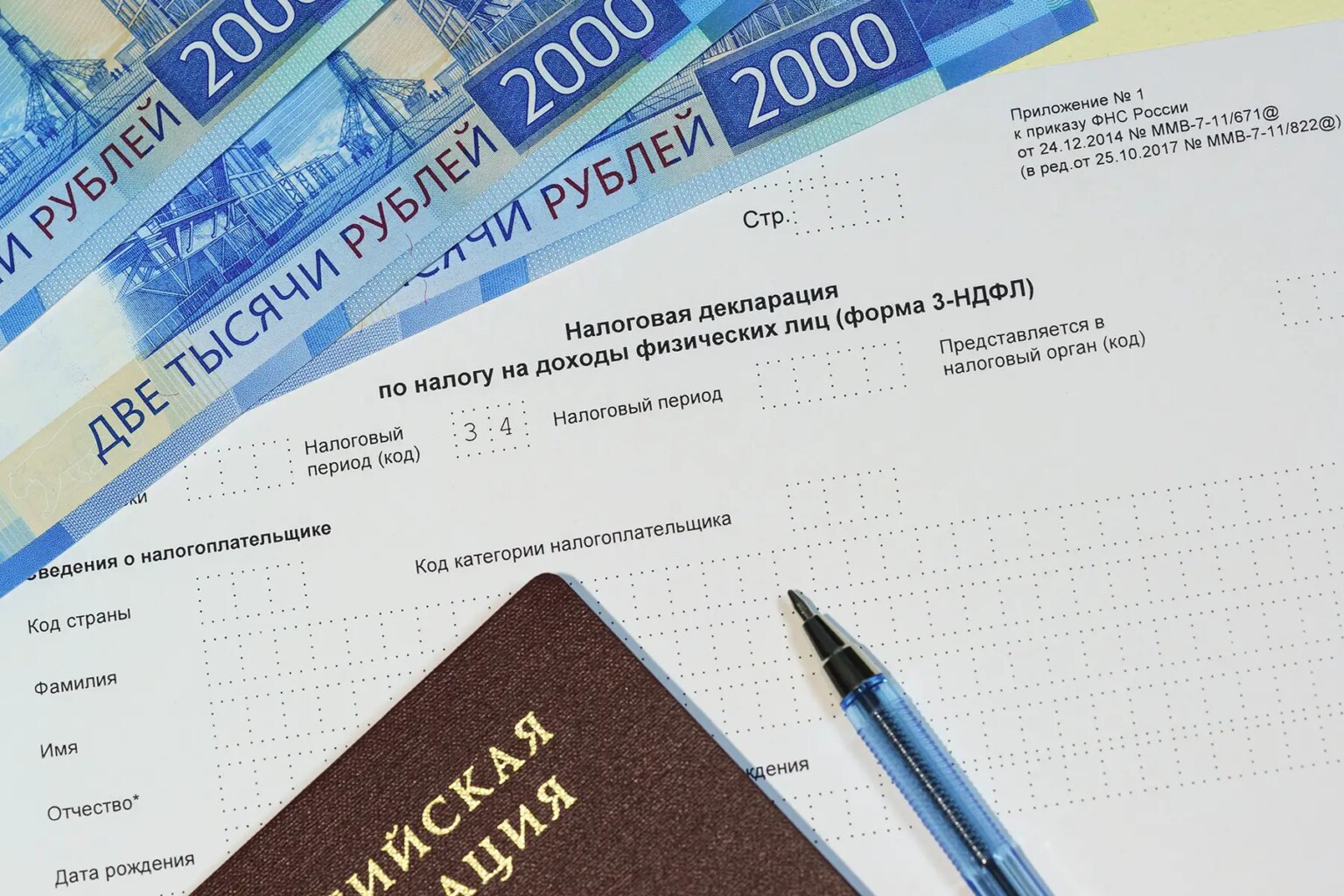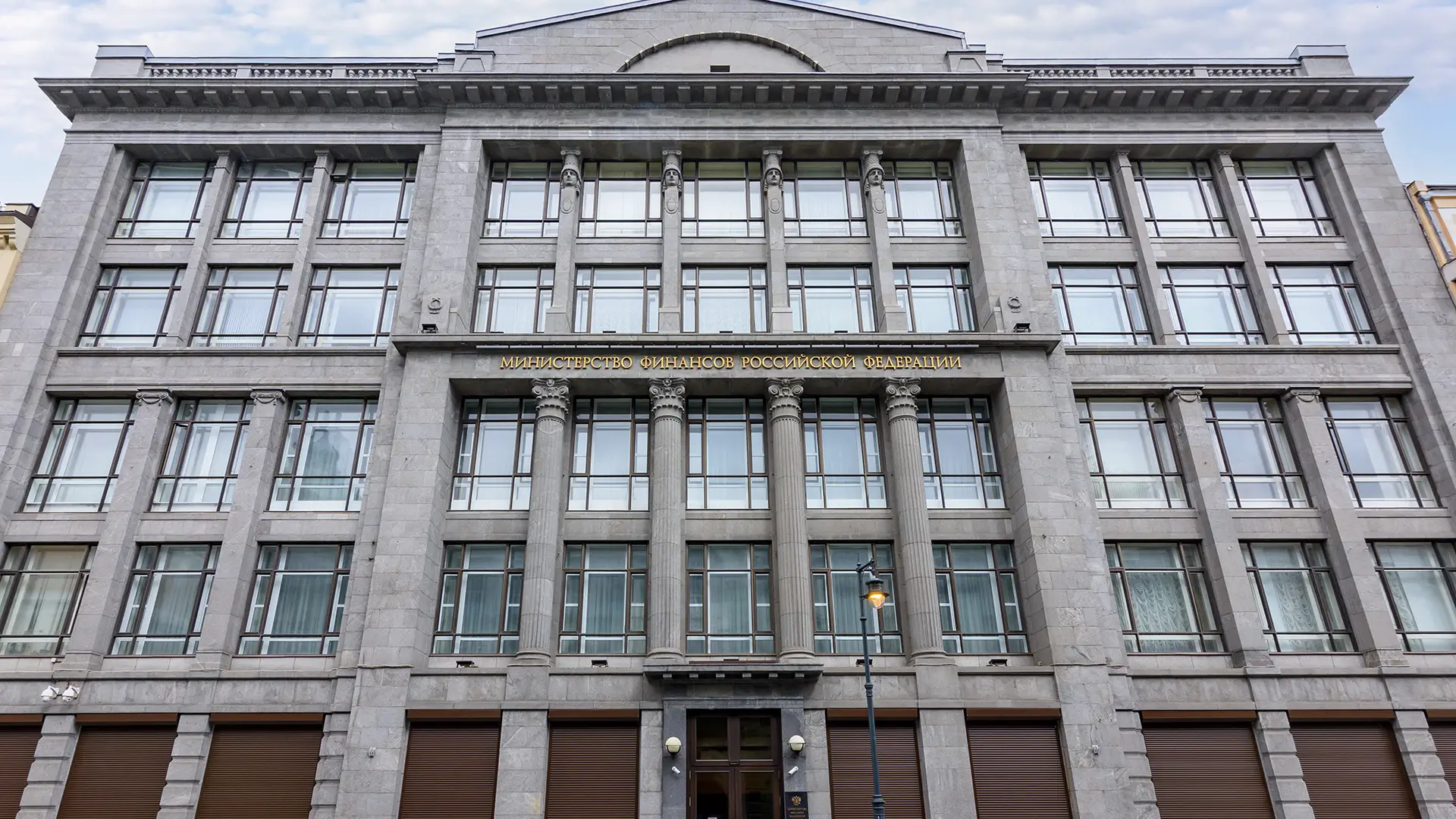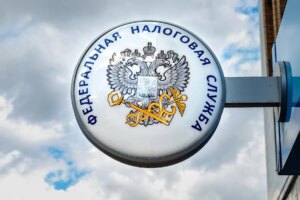Important notice from the Editor in Chief
Maintaining our Russian site is a delicate matter during the war. We have chosen to keep its content online to help our readers, but we cannot ensure that it is accurate and up to date. Our team endeavors to strike the right balance between giving information to those who need it, and respecting the gravity of the situation.
Expats living within the Russian Federation and non-residents with investments in the country must pay Russian income tax on any earnings from local sources.
In 2021, Russia implemented a progressive income tax rate for residents. Non-residents generally pay higher taxes in Russia and are not eligible to claim income tax deductions and allowances.
This guide explains how to file your Russian tax return, with information on:
Income taxes in Russia
The income tax system in Russia
The Russian Tax Code governs direct and indirect taxes within the country. Russia’s tax system features five brackets, with rates ranging from 13% to 22%. Non-residents generally pay a flat tax rate of 30%.
The Federal Tax Service of Russia (FTS), which is governed by the Ministry of Finance, oversees the administration of income taxes in Russia. Expats and nationals alike need a 12-digit Tax Personal Identification Number (INN). In general, your employer will assist with obtaining the tax number.
Foreign citizens are obliged to contact a local FTS office to register for income taxes in Russia. You will need to provide copies of a document that certifies your identity, such as your passport and your Russian residence permit.
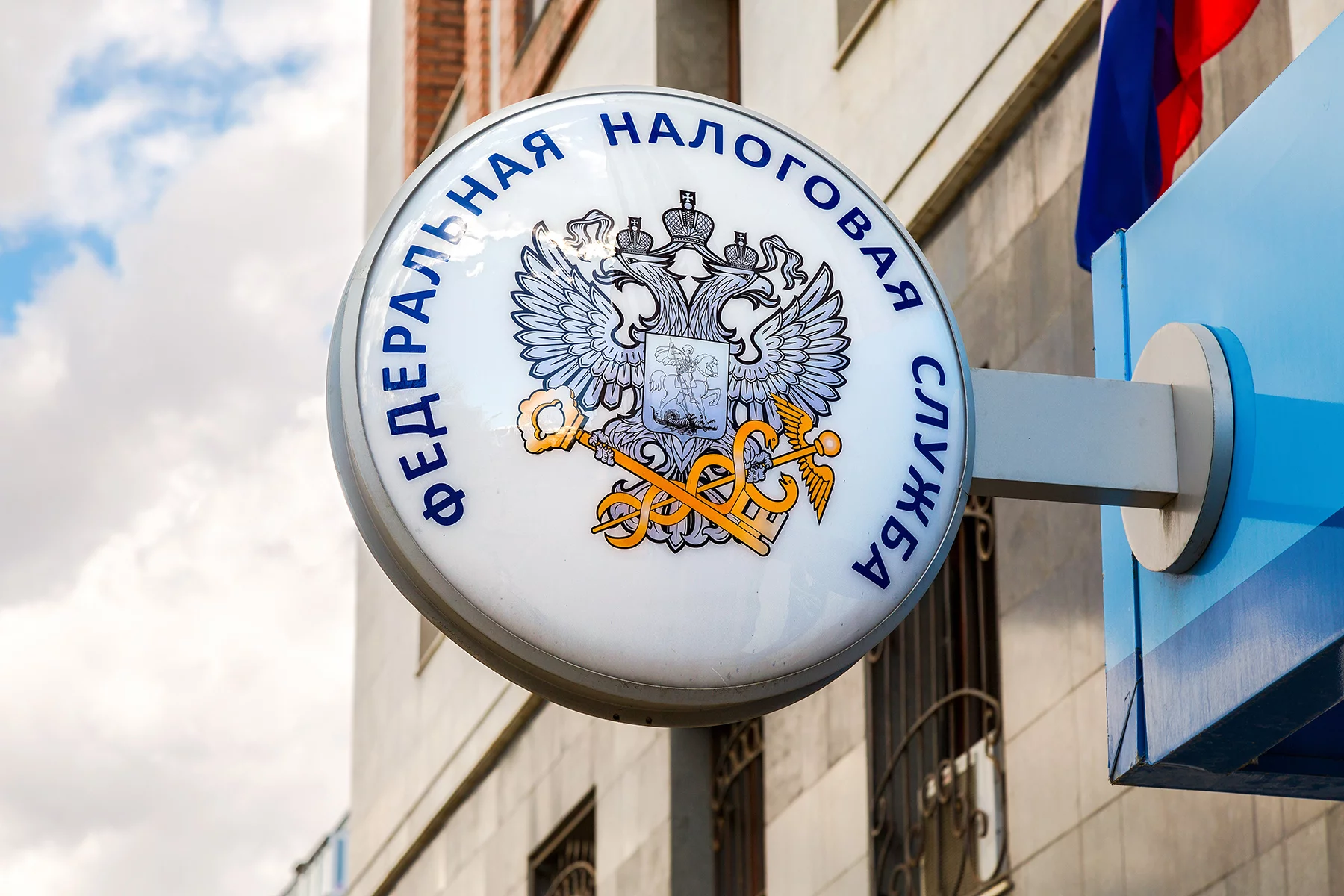
You can pay personal income taxes in Russia in two ways. First, withholding at source. This applies to most highly specialized expats working in Russia, who will see their employers deduct taxes from their wages. On the other hand, when tax is not withheld at the source, as the recipient you are obliged to file a return.
Income taxes in Russia are in rubles (₽) at the rate applicable to each income category.
Social security contributions in Russia comprise mandatory insurance contributions for pension insurance, social insurance, and medical insurance for each employee, as well as via contributions for mandatory social insurance against occupational accidents and diseases. These are paid by companies and individual entrepreneurs, as well as by individuals employing other individuals. No mandatory contributions are payable by employees.
Who pays income taxes in Russia?
All foreigners living in Russia and receiving an income from a local source must pay Russian income taxes. Such residents (i.e. people who live in the country for more than 183 days per year) must also declare their worldwide income and file a tax return on any overseas income. Non-residents, on the other hand, are only taxed on Russian-source income.
Individual businesses such as freelancers, contractors, and consultants pay personal income taxes in Russia on their business income whether it arises from a local or international source.
Types of tax-exempt income
Only a few types of income are exempt from personal income taxes in Russia. Such exemptions apply to the following types of income:
- Income on interest from state or municipal securities
- State pensions
- Certain social security benefits in Russia (such as unemployment, maternity allowances, and injury or professional illness allowances – within limits)
- Interest income on Russian bank deposits less than 1 million ₽
- Payments from mandatory insurance in Russia and long-term insurance contracts
- Income from the sale of Russian property held for more than five years
- Reimbursements of employees’ travel expenses within limits, and compensation for the employees’ educational expenses and mortgage interest payments
Earnings subject to income tax in Russia
Taxes on income and salary in Russia
A resident of Russia, living in the country for more than 183 days per calendar year, must pay tax on income arising from a number of sources, including wages, self-employment, dividends, interest from investments and savings, rents, and royalties. There is no separate capital gains tax in Russia, therefore gains from the sale of property and assets are subject to income tax at the normal rate.
Non-residents pay income taxes in Russia on money generated within the Federation, such as income received from property located in Russia, dividends received from Russian legal entities, and remuneration for activities performed in Russia (even if paid by a foreign legal entity from abroad).
Taxes on employment benefits
Russian authorities consider employment benefits part of an employee’s taxable income. Such benefits may include in-kind compensation such as company cars and gifts, reimbursements for housing, gains from exercising stock options, and employer contributions to foreign pension plans. Income received in kind is valued at fair market prices. These are taxed at the personal income tax rate.
Taxes on savings and investments
Interest (coupon income) arising from savings and investments must be included in your income tax return. Residents and non-residents pay 13% income tax on the interest accrued between 150,000 ₽ and 5,000,000 ₽, and 15% on income accrued above 5,000,000 ₽.
Taxes on investments and dividends
Residents receiving dividend income from investments will need to pay interest at the 13% tax rate. Non-residents, however, pay 15% on dividends received from Russian legal entities.
Income from the sale of shares in Russian companies after five years of continuous ownership is exempt from tax. This exemption now also applies to foreign shares.
Taxes on rental income
If you own property in Russia, any rental income attracts the same Russian income tax rates as other taxable income. Rental expenses such as mortgage interest, utility bills, and maintenance costs are not deductible for income tax purposes.
How to file your tax return in Russia
While it isn’t always necessary to file a tax return in Russia, it is advisable to do so as an expat for two reasons. Firstly, to declare any overseas income you may have. Secondly, all taxes may not have been withheld at the correct rate at the source of payment and paid to the Russian tax authorities, therefore filing a return offers a chance to correct any discrepancies.
It is, however, mandatory for self-employed professionals, registered businessmen, and recipients of other income (outside of a salary) to file a tax return.
You can file a Russian income tax return in different ways. The easiest method is online via the FTS website or using its mobile app, Налоги ФЛ. To register, you will need your universal tax number (INN in Russian, ИНН — индивидуальный номер налогоплательщика) – you can apply for it online (in Russian) but will need to visit a local FTS office to pick it up.
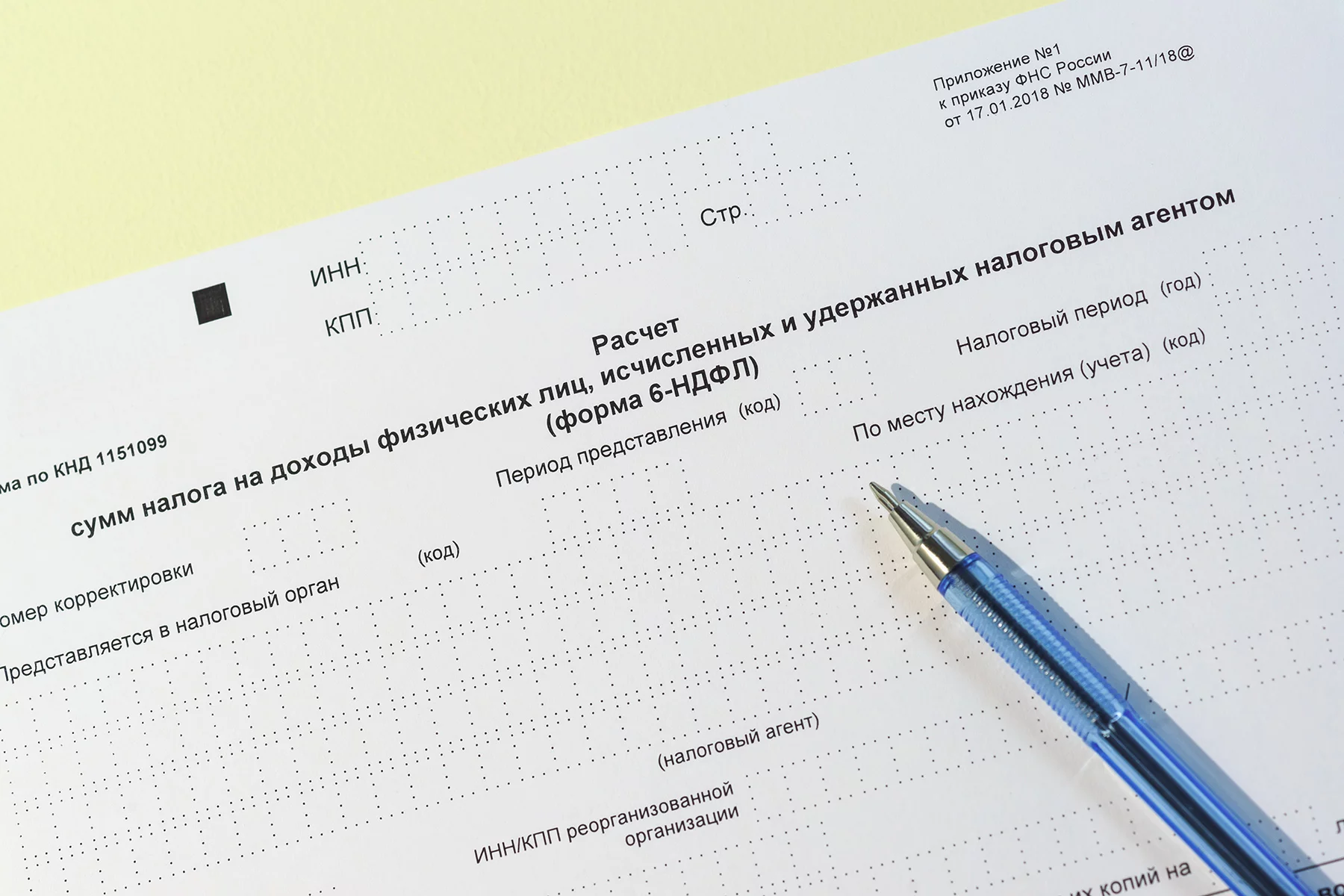
Alternatively, you can file your returns via a number of authorized specialized operators (in Russian). Additionally, there are also options to pay personally at the local Russian tax office in the city where you live, through a Russian bank account, or by visiting a post office.
You should keep copies of the payment documents and any other tax-related documents for up to four years. After submitting a tax declaration, you can contact the Russian tax authority to check if there are additional taxes, fees, or fines owed.
Tax deadlines in Russia
The tax year in Russia is the same as the calendar year. Russian income tax returns must be filed by 30 April of the following year. The deadline to pay any taxes is 15 July of the year following the reporting year.
An individual entrepreneur under the general tax regime must make three advance payments: on 25 July, 25 October, and 25 January of the tax year. The balance of the tax due is to be paid on 15 July.
Income tax forms
Expats with a single source of income – their salary – usually have their Russian income tax withheld at source and paid by their employer. In the case of other income, such as that arising from savings, dividends, or rent, you will need to file your own income tax declaration. The form to do so is NDFL-3.
Income tax rates in Russia
Residency status determines income tax rates in Russia. If you live in the country for more than 183 days per year and have a legal Russian residency permit, you are a tax resident. Therefore, you will need to pay income taxes in Russia at the following rates.
| Earnings | Income tax rate |
| Up to 2,400,000 ₽ | 13% |
| 2,400,001–5,000,000 ₽ | 15% |
| 5,000,001–20,000,000 ₽ | 18% |
| 20,000,001-50,000,000 ₽ | 20% |
| 50,000,001 ₽ and above | 22% |
However, non-residents only pay tax on income arising from local sources. The tax rate for non-residents is 30%.
Foreigners with a temporary or a permanent residence permit are eligible to register as an individual entrepreneur (индивидуальный предприниматель) or IP (ИП), which means that different tax rates apply. Such IPs pay between 4–6% on their turnover as income taxes in Russia. The former rate applies when providing services to private individuals, while the higher rate is for companies.
Income tax for married couples
Russia does not have separate rules for married couples. If both husband and wife have taxable income within the Russian Federation, each must pay Russian income tax separately. In contrast to many European countries, there is no concept of joint tax returns in Russia.
Personal tax allowances and deductions in Russia
Official residents can reduce their Russian income tax bills via deductions and allowances. These are typically not available to non-residents.
The main deduction from income taxes in Russia applies to children. The exemption is 1,400 ₽ for the first child, 2,800 ₽ for the second child, and 6,000 ₽ for the third child onwards. It does not matter where the children live when applying for this tax deduction. However, to qualify for a deduction of child tax, you must be earning a cumulative annual income of less than 450,000 ₽.
Individuals may also deduct the costs of their own education in licensed institutions (within limits) and for their children’s education (up to 50,000 ₽ per child).
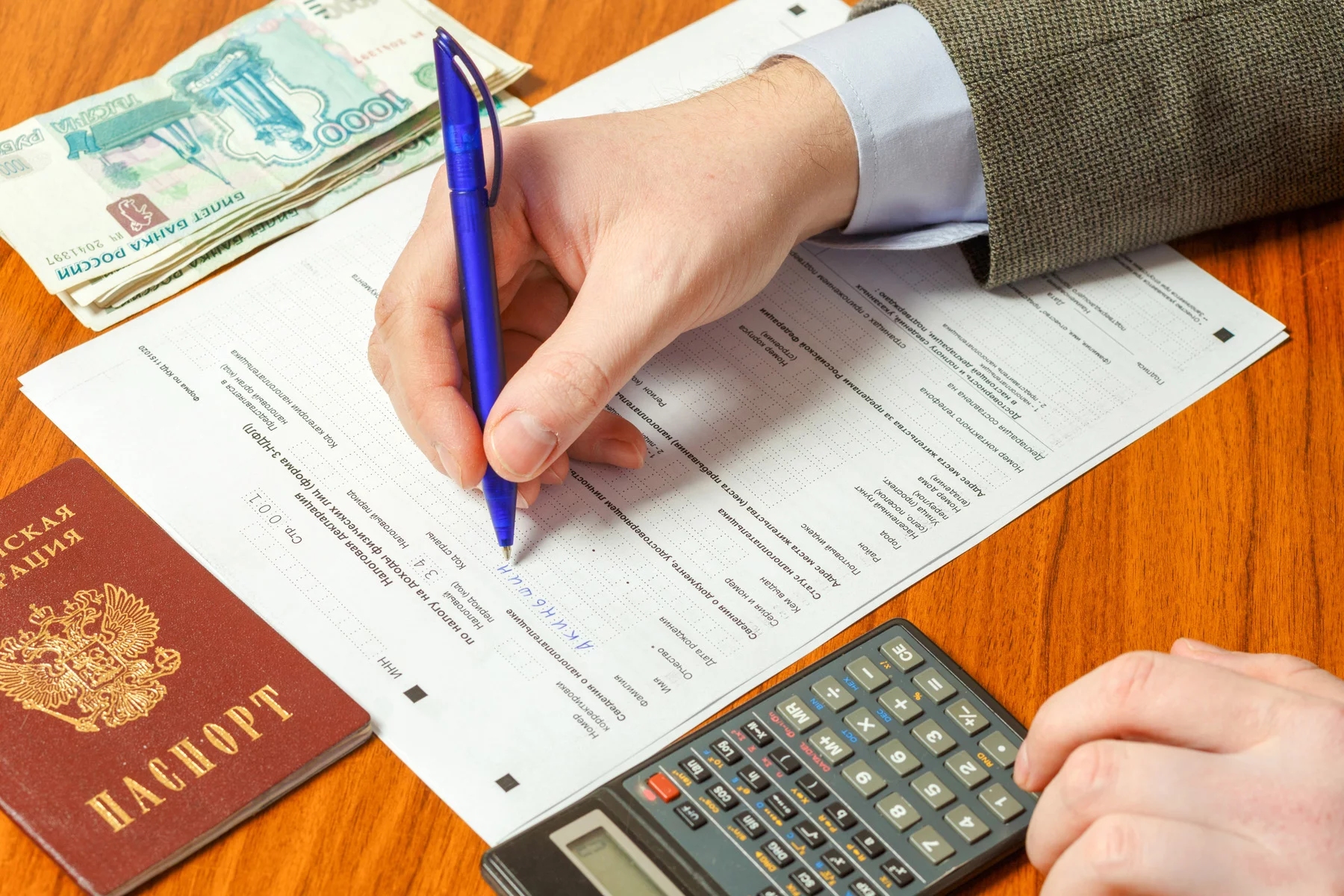
Donations to certain non-commercial organizations and charities are deductible from taxable income (within the limit of 25% of all income subject to the 13% tax rate).
Self-employed tax allowances in Russia
Self-employed entrepreneurs in Russia are generally required to pay income taxes on the profit from their businesses, typically the amount arrived at after deducting business expenses from revenue. Such deductions and allowances are laid out in the Russian corporate tax code.
Income tax in Russia for foreigners
Expat residents in Russia can claim a foreign tax credit against their Russian tax liabilities if they are covered by a relevant Double Taxation Treaty (DTT). The credit may not exceed the amount of tax payable in Russia.
In order to claim the tax credit, individuals must provide supporting documentation along with the tax declaration within three years after the reporting period.
Tax refunds in Russia
Due to Russia’s residency rules, income tax may sometimes be withheld at the wrong rate. In such cases, expats should contact the local tax office directly to ask about refunds. Since such dealings are likely to be in Russian, it is worth seeking the advice of a local tax lawyer.
Tax fines in Russia
A failure to file Russian income tax by the deadline may attract a considerable fine. Such penalties are 6.75% of the outstanding tax liability for each month of delay.
The total amount late filing penalty is a maximum of 30% of the outstanding tax liability but cannot be less than 1,000 ₽. Payment delays also attract interest equal to 1/300 of the Central Bank’s refinancing rate per day of delay.
Tax advice in Russia
Although income taxes in Russia appear straightforward, there are a few exceptions and deductions available to resident and non-resident taxpayers alike. The tax system is fluid, and many legal requirements may not be applicable in practice thanks to additional exceptions. There is also wide scope for interpretation.
Further, taxes may not always be withheld according to an expat’s residence status. As such, it is advisable – particularly for expats who are self-employed – to seek expert advice before determining the likely tax consequences and finalizing their returns.
Useful resources
The following resources could prove helpful for those looking for more information about income taxes in Russia:
